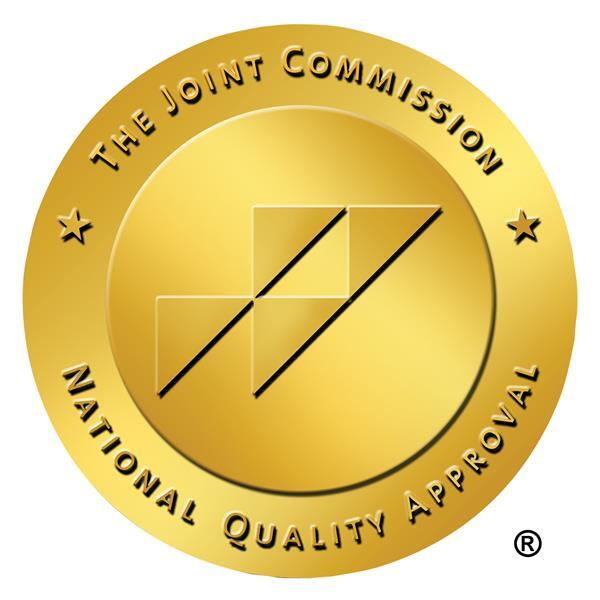Mental Health for LGBTQ+:
Addressing Needs
Navigating the Struggles of LGBTQ+ Individuals
The LGBTQIA+ community faces a unique set of challenges when it comes to mental health. The societal stigma, discrimination, and minority stress they experience can lead to or exacerbate existing mental health challenges, such as:
- Anxiety
- Depression
- Suicidal ideation

Whole-Person, Compassionate Care at MBO
Mind Body Optimization (MBO) offers a comprehensive approach to mental health for LGBTQ+. Through evidence-based and whole-person strategies, MBO ensures that those within the LGBTQ+ community receive the care they need in a safe and affirming environment.
Mental Health for LGBTQ+: Understanding Challenges
Depression and Anxiety
Suicidal Attempts
Mental Health for LGBTQ+: The Unique Stressors Faced by the LGBTQ Community
Social Discrimination and Prejudice
- Fear
- Isolation
- Insecurity
This stigma can manifest in various ways, from subtle microaggressions to overt discrimination in housing, employment, and public accommodations. The constant pressure to hide one’s true self can be emotionally draining. This can contribute to anxiety and depression.
Legal Discrimination
- Marriage rights
- Adoption rights
- Access to gender-affirming healthcare
Identity Challenges
- Isolation
- Confusion
- Low self-esteem
Experiences of Violence and Victimization
- Bullying
- Hate crimes
- Intimate partner violence
These experiences can be highly traumatic and contribute to the development of mental health conditions such as post-traumatic stress disorder (PTSD) or depression.
Evidence-Based Strategies for Improving Mental Health for LGBTQ+ Individuals
Cognitive-Behavioral Therapy (CBT)
CBT is a powerful tool that can be particularly effective in helping LGBTQ+ individuals manage the unique stressors they face.
Understanding the Cycle
CBT focuses on the connection between thoughts, feelings, and behaviors. When faced with discrimination or stigma, an LGBTQIA+ person might have negative thoughts about themselves or the world.
Cognitive Restructuring
- Examining the evidence for and against the thought
- Identifying underlying assumptions
- Developing more balanced and realistic perspectives
Building Coping Mechanisms
- Deep breathing exercises
- Mindful meditation
- Progressive muscle relaxation
Building Self-Esteem
Mental Health for LGBTQ+: Acceptance and Commitment Therapy (ACT)
Accepting Thoughts and Feelings
Values-Driven Living
- Authenticity
- Connections
- Personal goals
Committing to Action
Mental Health for LGBTQ+: The Role of Professional Counseling
Tailored Approach
Reduced Stigma and Shame
Culturally Sensitive Support
Comprehensive Approaches to Mental Health for LGBTQ+ Community
At MBO, we recognize that mental health is not solely defined by the absence of mental illness. It encompasses a state of emotional, psychological, and social well-being. Therefore, our approach to supporting mental health for LGBTQ+ extends beyond traditional psychotherapy.
Mindfulness
Mindfulness involves focusing on the present moment without judgment. This allows LGBTQIA+ individuals to observe thoughts and feelings without getting swept away by them.
- Breath
- Bodily sensations
- Present experiences
Meditation
Mental Health for LGBTQ+: Nutritional Support (Coming Soon)
Brain Health
Mood Regulation
- Bananas
- Turkey and chicken
- Eggs
- Salmon
- Nuts and seeds
- Dairy products
- Dark chocolate
Stress Management
A balanced diet can help regulate blood sugar levels. This prevents energy crashes that can worsen stress and anxiety. Complex carbohydrates like whole grains provide sustained energy, whereas lean protein sources provide essential amino acids.
Physical Activity to Improve Mental Health for LGBTQ+
Stress Reduction
- Stress
- Anxiety
- Symptoms of depression
Improved Sleep
Building a Supportive Community
Mental Health for LGBTQ+: Emotional and Psychological Support
- Explore their identities
- Build resilience
- Find the support they need to thrive
Identity Affirmation
Our aim is to help our clients openly discuss challenges related to:
- Identity exploration
- Coming out
- Navigating relationships
Building Resilience
- Developing a positive mindset
- Building self-esteem
- Prioritizing self-care
Mental Health for LGBTQ+: Support Groups
Shared Experiences
Emotional Support
- Share struggles
- Vent frustrations
- Receive encouragement from peers
Learning from Others
Building a Sense of Belonging
Mental Health for LGBTQ+: The Need for Social and Community Support
- Express themselves openly
- Share feelings
- Receive encouragement from like-minded individuals
Mental Health for LGBTQ+: Community Resources in Texas and Tennessee
Texas
- The Trevor Project: Provides crisis intervention and suicide prevention services to LGBTQ+ youth. It is available nationwide. (https://www.thetrevorproject.org/)
- Equality Texas: Advocates for LGBTQ+ equality in Texas. It also provides resources on legal issues, healthcare, and community support. (https://www.equalitytexas.org/)
- Texas Transgender Alliance: Offers support, resources, and advocacy for transgender individuals and communities in Texas. (https://achievingtogethertx.org/ttaresourceguide/)
Tennessee
- The Trevor Project (as mentioned above)
- Tennessee Equality Project: Advocates for LGBTQ+ equality in Tennessee. It also provides resources on legislation, community centers, and healthcare. (https://www.tnep.org/)
- Memphis Gay and Lesbian Community Center (MGLCC): Offers social events, support groups, and resources for LGBTQ+ individuals in Memphis and surrounding areas. (https://www.outmemphis.org/mglcc-becomes-outmemphis/)
Mental Health for LGBTQ+: Creating a Personalized Self-Care Plan
Mental Health for LGBTQ+: Self-Assessment
Identify Stressors
- Work pressures
- Relationship challenges
- Financial concerns
- Societal pressures related to LGBTQ+ identity
Evaluate Your Needs
- What areas require the most attention?
- Do you need to prioritize physical activity, relaxation techniques, creative outlets, or time spent in nature?
Identify Self-Care Preferences
- Spending time with loved ones
- Engaging in hobbies
- Practicing mindfulness
- Listening to music
Mental Health for LGBTQ+: Integrating Self-Care into Daily Routines
Start Small
Schedule Self-Care Activities
Find Enjoyable Activities
Be Flexible

Tailored Approaches to Mental Health for LGBTQ+ at MBO
At MBO, we provide evidence-based and whole-person strategies to address the challenges of mental health for LGBTQ+. Our approach integrates personalized treatment plans with a deep understanding of LGBTQ+ experiences. This ensures a safe and affirming environment for our clients.
Take Charge by Exploring Support Options at Mind Body Optimization
If you identify as LGBTQIA+, it is essential to prioritize your mental health. MBO has an expert team of therapists who understand your unique experiences. We provide comprehensive support with a strong emphasis on self-care.
Contact MBO today and explore how we can empower you to achieve lasting mental well-being and thrive as your authentic self.
Resources
- https://news.gallup.com/poll/611864/lgbtq-identification.aspx
- https://www.samhsa.gov/data/sites/default/files/NSDUH-SexualOrientation-2015/NSDUH-SexualOrientation-2015/NSDUH-SexualOrientation-2015.htm
- https://www.samhsa.gov/newsroom/press-announcements/20230613/samhsa-releases-new-data-lesbian-gay-bisexual-behavioral-health
- https://www.thetrevorproject.org/survey-2022/
- https://mhanational.org/issues/lgbtq-communities-and-mental-health
- https://www.usatoday.com/story/life/health-wellness/2022/06/22/lgbtq-americans-majority-face-discrimination-glaad-study/7614028001/
- https://www.statista.com/chart/21976/family-support-for-lgbtq-youth/






